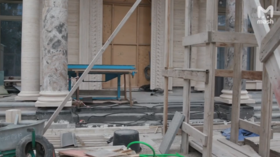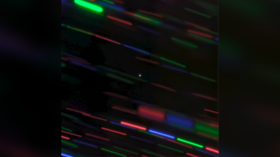More than 100 detained in Moscow as police move to break up unsanctioned protests by supporters of jailed activist Alexey Navalny
Supporters of jailed Russian opposition figure Alexey Navalny have taken to the streets again on Sunday to demand his release from prison. Police have detained more than 100 people at unsanctioned rallies in central Moscow.
Last Saturday saw a number of violent clashes between law enforcement and demonstrators, which appears to have triggered a even larger police response ahead of the latest events. In Moscow, security services have erected metal barriers, closing off the city center, including the area around the Kremlin. In an unprecedented step, at least in modern times, seven central subway stations were also closed.
Navalny's team, which originally called for a gathering near the iconic Lubyanka Building (the headquarters of the FSB) has instructed protesters to meet near the Krasnye Vorota and Sukharevskaya subway stations, further to the north of Europe's largest city.
Riot police have begun to detain people and escort them to police vans. The head of the city’s commission that monitors human rights, Aleksey Melnikov, told TASS news agency that around 150 people had been detained.
According to opposition police-tracking NGO OVD-Info, which has received some Western funding, nearly 900 people had been detained in Moscow by 5pm local time.
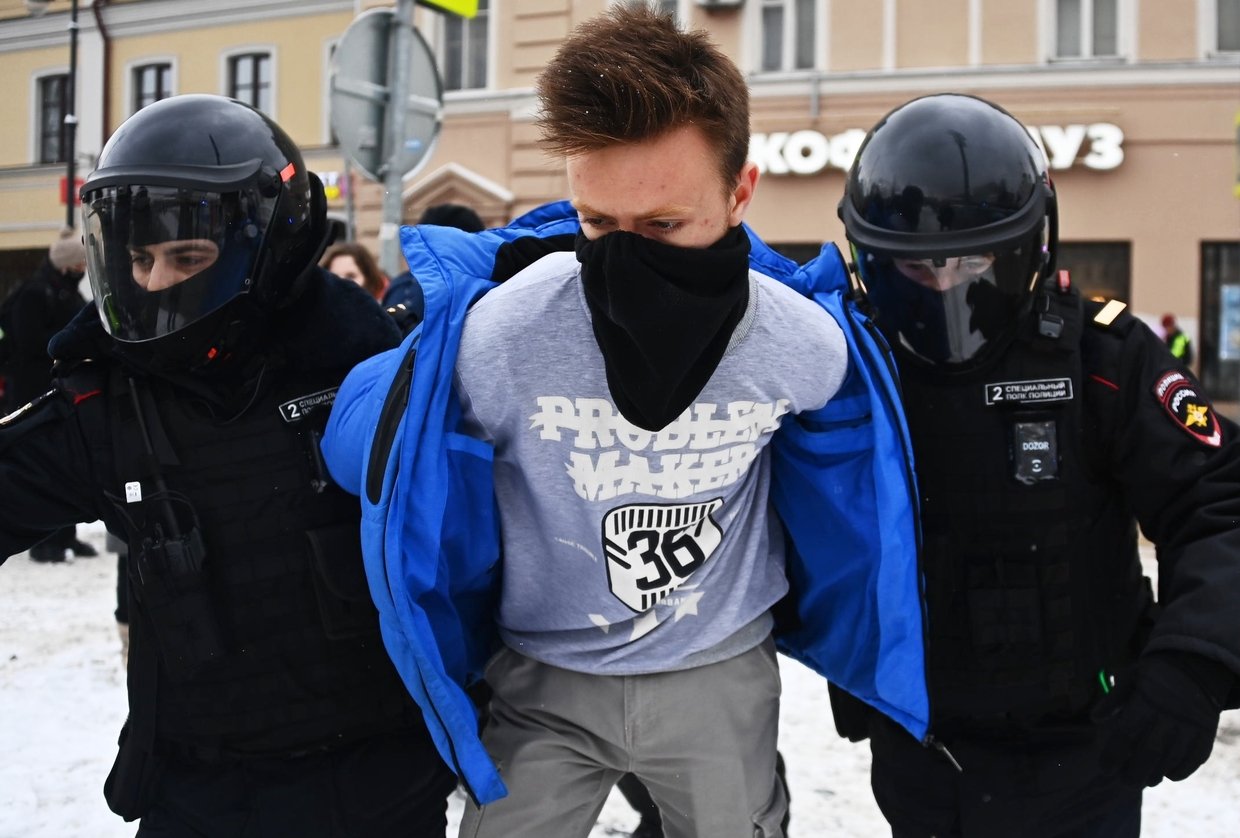
Navalny's team, which originally called for a gathering near the iconic Lubyanka Building (the headquarters of the FSB) has instructed protesters to meet near the Krasnye Vorota and Sukharevskaya subway stations, further to the north of central Moscow.
They later directed the crowds to proceed to the Krasnoselskaya and Sokolniki subway stations, and also to the Matrosskaya Tishina police detention center, where Navalny is being held.
Moscow police said that 2,000 people were taking part in the protests by 2:30pm local time. Navalny’s close associate Ivan Zhdanov, head of his Anti-Corruption Foundation (FBK), dismissed this as “lies,” claiming on a YouTube live stream that the actual number was much higher.
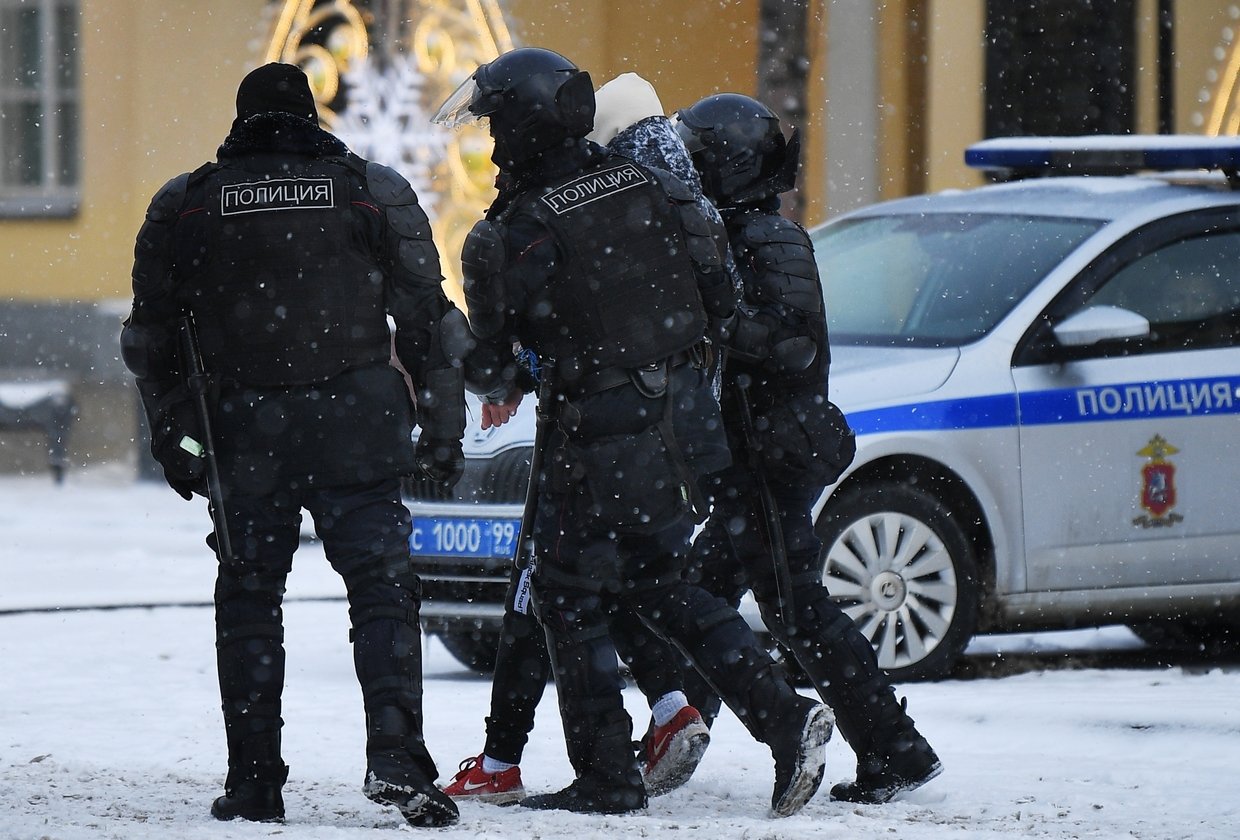
The first wave of rallies in support of Navalny took place on January 23, some of which turned violent as police clashed with participants.
In Russia, as in almost all of Europe, mass gatherings are currently banned, to varying degrees, under regulations to fight the Covid-19 pandemic. In many cities, police used loudspeakers asking the crowds to disperse, and made arrests when people refused to leave.
Navalny remains in custody, awaiting a court ruling on whether he violated his probation terms. The court hearing is scheduled for February 2, and Navalny’s supporters plan on holding another rally that day.
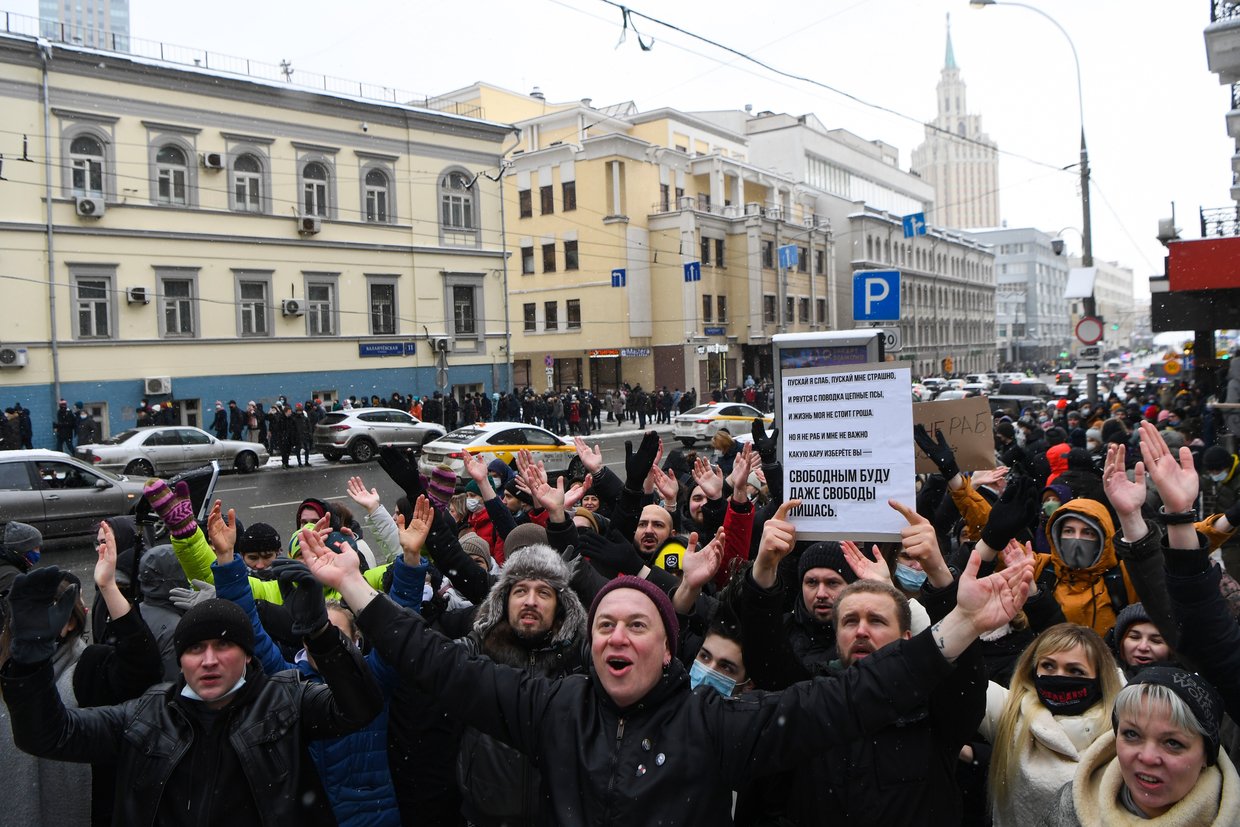
In 2014, Alexey Navalny and his brother Oleg, who ran a logistics firm, were found guilty of defrauding two companies, including the French-based cosmetics giant Yves Rocher. Alexey, who claims that the entire case was politically motivated, was given a suspended sentence that required him to regularly check in with police. However, Oleg served a prison term.
The alleged probation violation happened after the activist was discharged from Berlin’s Charite clinic in September 2020, where he was being treated for suspected poisoning. Russia’s prison authority said that he had failed to show up for registration at a police station. The activist, meanwhile, argued that he needed to spend a few more months in Germany to make a complete recovery.
Navalny was flown to Germany last year after suddenly falling ill on board a plane in Russia. Berlin claims that traces of the Novichok-class nerve agent were found in his system. The activist himself has accused agents of Russia’s Federal Security Service of trying to assassinate him. Moscow denies the allegations and claims Navalny has been working with foreign intelligence services to smear Russia.
After spending months in Germany, Navalny returned to Moscow on January 17 and was immediately detained on arrival. He said his arrest was unlawful and called on his supporters to take to the streets in response.
Days later, Navalny’s team released a nearly two-hour video exposé, alleging that Russian President Vladimir Putin secretly owns a luxurious residence, currently being built on the Black Sea coast. The property, which was dubbed ‘Putin’s Palace’ in the film, was said to be evidence of corruption on the part of the Russian leader. Putin has denied having any involvement in the project.
On January 30, Russian billionaire Arkady Rotenberg said that he is the actual “beneficiary” of the property and wants to turn it into a hotel.
Think your friends would be interested? Share this story!
